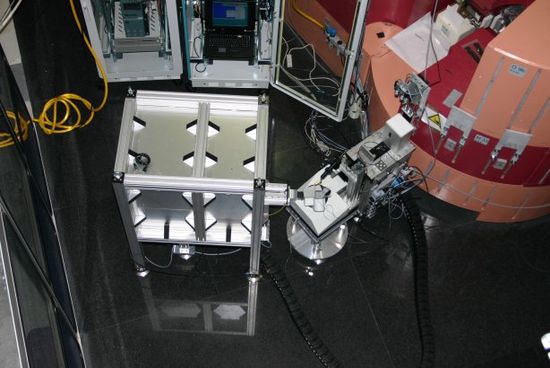Neutron single crystal diffractometer (instrument RESI)
Structure analysis with thermal neutrons (λ=0.8-2Å) is complementary to structure analysis with x-rays. The diffractometer RESI is designed for using a maximum of thermal neutron intensity at the FRM-II, allowing optimum measurement of weak diffraction phenomena in a large portion of the reciprocal space. The measurement possibilities provided by this instrument are crucial for many scientific questions as structure analysis, bonding theory or electron densities.
Due to the interaction with atomic cores and the diffraction angle independence of the atomic form factor, it is possible to measure Bragg scatteringup to high diffraction angles. The instrument is optimized for certain main focal areas.
Combined x-ray and neutron scattering experiments will be used to get exact electron densities in compounds containing light elements. A special emphasis will be on bond theory studies on compounds relevant for homogenous catalysis. Combined experiments will allow for the determination of chemical and physical molecular properties ( e.g. dipole/ quadrupole moments, electrical field gradients etc. electrostatic potentials, d-orbital occupancies, diamagnetic susceptibility, static polarisability, (AIM-) partial charges).
